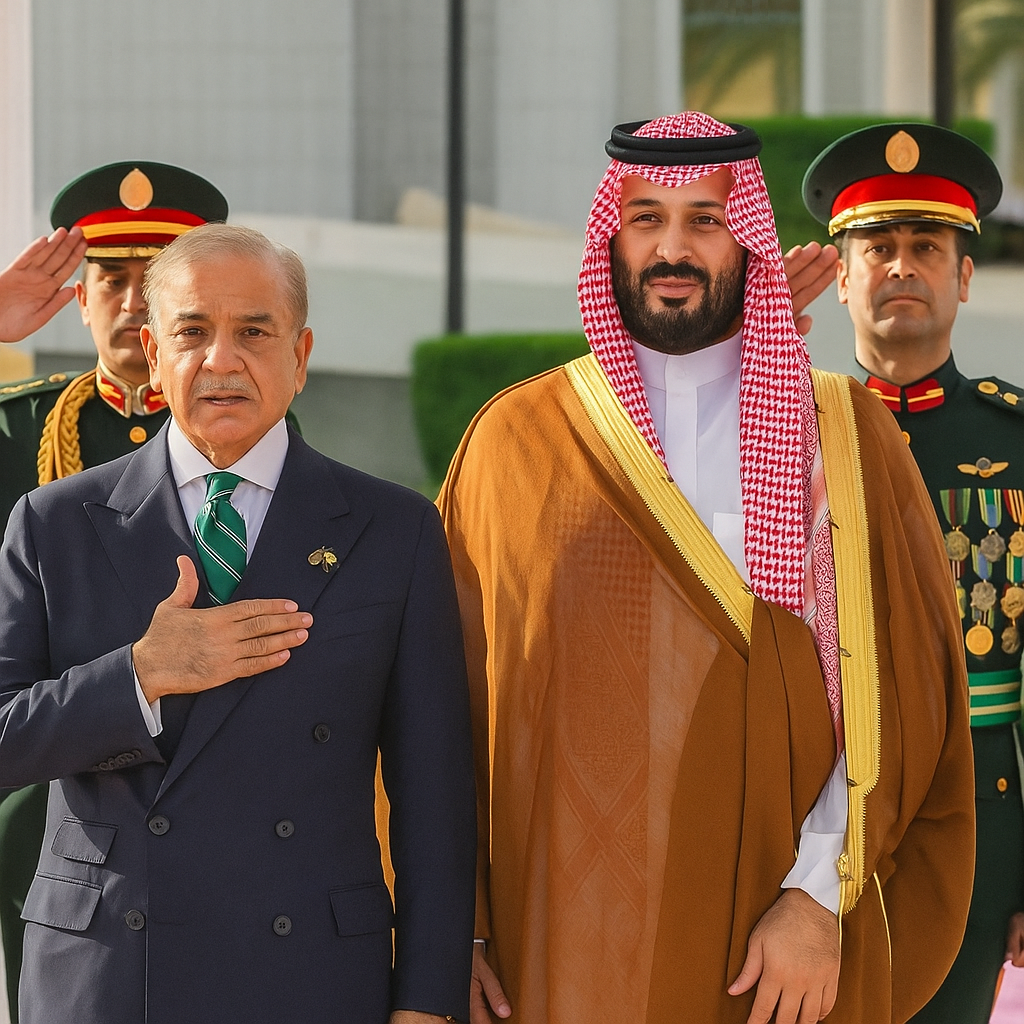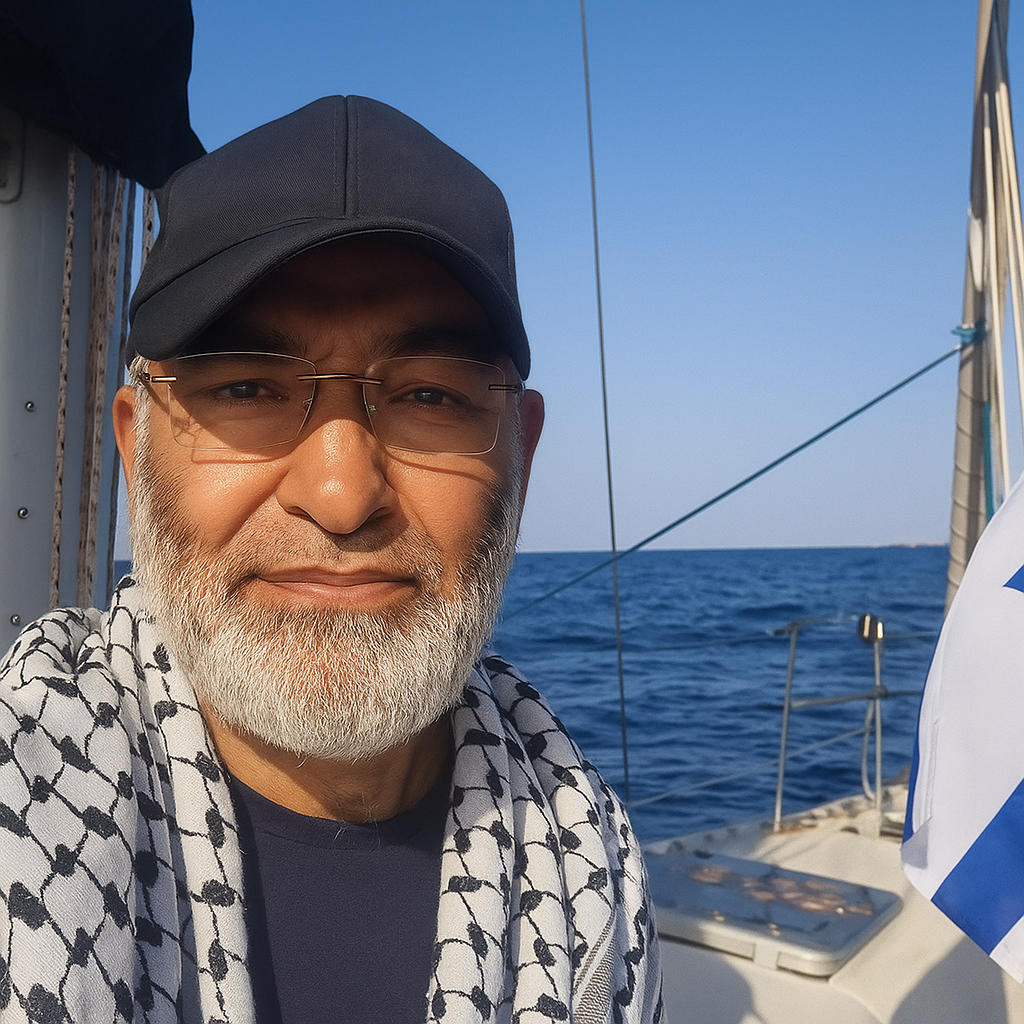Saudi Business Delegation Lands in Pakistan: The Start of a New Economic Chapter?
A high-powered Saudi business delegation, led by Prince Mansour bin Mohammad Al Saud, has arrived in Islamabad to explore fresh opportunities in trade, investment, and strategic collaboration. The visit marks a crucial moment for Pakistan–Saudi relations, bridging not only business interests but also shared strategic ambitions that extend across defense, infrastructure, and innovation.
This mission follows weeks after the landmark Strategic Mutual Defence Agreement, which elevated the relationship from friendly to firmly allied — declaring that an attack on one would be treated as an attack on both. Now, both sides are taking this brotherhood from words to action, aiming to turn security cooperation into economic momentum.
A Visit Packed with Purpose
The Saudi delegation is expected to hold high-level meetings with Pakistan’s top leadership, including the Prime Minister, senior cabinet members, and heads of leading business chambers. Key objectives include identifying priority sectors for investment, forming public–private partnerships, and deepening cooperation under the umbrella of Saudi Vision 2030 and Pakistan’s own reform roadmap.
Discussions are expected to revolve around major investment zones, infrastructure modernization, and industrial expansion — all areas where Saudi capital and Pakistan’s workforce can create high-value synergy. The visit also signals Riyadh’s willingness to re-enter Pakistan with long-term investment commitments rather than short-term financial aid.
Sectors in the Spotlight
- Energy and Infrastructure
Pakistan’s energy shortfall and infrastructure gaps have long hindered growth. Saudi investors are eyeing opportunities in renewable power, oil refining, and LNG terminals. Talks also include the development of special industrial zones, transport networks, and smart logistics systems to support regional trade routes. - Mining and Minerals
With Pakistan’s vast reserves of copper, gold, and rare earth minerals, Saudi interest in the mining sector is intensifying. The kingdom, aiming to diversify its economy beyond oil, sees Pakistan as a promising ground for joint mining ventures and resource-based manufacturing. - Technology and Innovation
In line with Vision 2030’s digital transformation goals, Saudi Arabia is keen to invest in Pakistan’s growing IT and tech ecosystem. Collaborations in AI, fintech, cybersecurity, and automation are expected to form part of the discussions, with a focus on transferring technology and creating skilled job opportunities. - Agriculture and Food Security
Pakistan’s fertile land and agri-expertise can help Saudi Arabia achieve its food security targets. The two nations are exploring large-scale agricultural partnerships, from sustainable farming models to food processing and export channels, ensuring stable supply chains for both countries. - Defense Production and Security Technology
Following the new defense pact, both sides are exploring avenues in joint defense manufacturing, training programs, and security tech collaborations — integrating military cooperation with industrial capability.
Why This Visit Matters Now
For Pakistan, the timing couldn’t be more critical. With rising fiscal pressures, a shrinking industrial base, and a need to stabilize foreign reserves, attracting direct foreign investment is essential. Saudi Arabia, on the other hand, is seeking strategic investment destinations beyond its borders — markets that align with its diversification agenda and geopolitical interests.
The visit represents a shift from traditional aid-based relations to mutual economic empowerment. It also signals Saudi Arabia’s confidence in Pakistan’s evolving political stability and reform momentum, particularly in areas like taxation, digitalization, and governance.
Beyond Business: A Strategic Realignment
This trip isn’t just about economics — it’s about positioning Pakistan as a regional partner in Saudi Arabia’s long-term strategic vision. The defense pact earlier in September set the foundation for joint security cooperation, and now the business mission aims to weave economic fabric into that alliance.
By combining defense alignment with trade expansion, both countries are creating a dual axis of cooperation — one that links security stability with economic prosperity. This strengthens Pakistan’s geopolitical relevance while helping Saudi Arabia secure a trusted ally in South Asia amid shifting global dynamics.
Opportunities and Challenges Ahead
Opportunities:
- Major inflow of Saudi capital into industrial and infrastructure projects.
- Job creation and technology transfer for Pakistan’s youth-driven economy.
- Expansion of bilateral trade volume, potentially doubling within three years.
- Reinforcement of Pakistan’s strategic standing in the Muslim world.
- Strengthening regional connectivity through joint projects under Vision 2030.
Challenges:
- Pakistan’s regulatory bottlenecks and bureaucratic delays could slow implementation.
- Currency volatility may affect investor confidence.
- Past commitments between both nations sometimes fell short of full realization — this time, implementation will define credibility.
- Transparency and execution will be key to converting MOUs into actual investments.
The Road Ahead
The Saudi delegation’s visit marks the beginning of what could become a transformative phase in Pakistan’s economic diplomacy. If both sides can deliver on their promises — by fast-tracking projects, simplifying investment processes, and ensuring mutual accountability — this partnership could shape the next decade of Pakistan’s industrial and financial landscape.
From mining to manufacturing, from defense to digital innovation — the foundations of a modern Pakistan–Saudi economic alliance are being laid. And while challenges remain, the intent on both sides appears stronger than ever.
The world is watching closely as the desert kingdom and the land of five rivers align — not just in faith, but in future.



